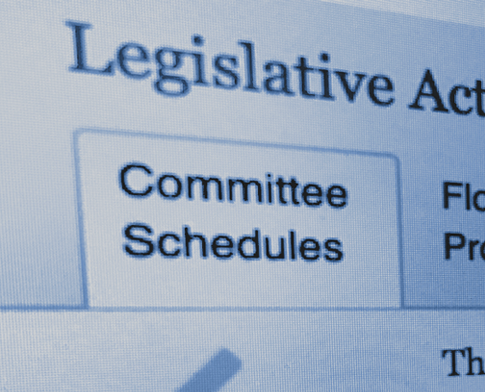Health Update (June 18)
House Ways & Means Hearing
The House Ways and Means Committee held a hearing on Medicare for All on Wednesday, June 12th entitled “Pathways to Universal Health Coverage.” The hearing became relatively contentious and was divided along party lines. Committee Democrats echoed the calls of Chairman Richie Neal and talked about the positive aspects of the Affordable Care Act (ACA) and ways to improve upon it, or to switch to a Medicare for All system. They accused Republicans, both in Congress and in the Administration, of tearing apart the ACA and causing millions of Americans to lose their health coverage. House Republicans, led by Ranking Member Kevin Brady, fought back contentiously, claiming that Democrats would knock millions off of their private insurance that they are already content with, and replace it with a system that would cost over $32 trillion dollars, offer a lower quality of care, longer wait times, and limited options. Disparities in healthcare coverage in minority and rural communities was also one of the main debated topics of the hearing, with numerous Committee Members adamantly demonstrating their viewpoints on the matter. To read a more detailed summary of this hearing, click here.
House Energy & Commerce Hearing
The House Energy & Commerce Committee’s Subcommittee on Health held a hearing on Wednesday, June 12th entitled “No More Surprises: Protecting Patients From Surprise Medical Bills.” There was bipartisan agreement that surprise billing needs to end. Both Democrats and Republicans made it clear to all the stakeholders at the hearing that if they could not help in this, they would move forward without them. Members focused on the personal stories they heard from their constituents about instances of surprise billing. They were confused about the complicated process that surrounds how surprise billing works. The issue discussed the most was surprise billing due to care at an emergency room. All members agreed these situations where patients are being urgently cared for from out-of-network providers and being billed thousands of dollars was wrong. They agreed that they needed to take patients out of the middle between the compensation disputes between providers and insurers as well. There was disagreement from stakeholders on how to handle these disputes. Many would like to move toward a baseball-style arbitration setting instead of the proposed median in-network approach included in the draft legislation. To read a more detailed summary of this hearing, click here.
Senate Judiciary Committee Hearing
The Senate Judiciary Committee held a hearing on Wednesday, June 12th entitled “ Vertical consolidation of the healthcare industry and the protection of consumers were the main talking points of the hearing. Chairman Lee and Ranking Member Klobuchar agreed that there needs to be further conversation on the oversight and investigations into both vertical and horizontal consolidation. Both Ranking Member Klobuchar and Senator Grassley have proposed bills to address pay for delay deals, force merging companies to pay higher fees, and create a higher legal standard for if a merger “harms the competition.” The panel all agreed that vertical consolidation is not inherently bad and can be useful in the healthcare industry. Furthermore, the panel also made clear that there must be oversight of these deals to ensure there is no harm to competition or consumers. The CVS/Aetna Merger was seen by most of the panel as a compelling case for vertical consolidation. There was also agreement among the panel and legislators that anti competitive behavior, such as behavior that limits the generic medicine industry, needs to be addressed through legislation. To read a more detailed summary of this hearing, click here.
Pelosi Drug Pricing Plan
Speaker Nancy Pelosi’s drug pricing proposal faced harsh criticism from those within her own party, which resulted in some altering of the proposal. Pelosi said during a closed-door meeting that she now wants federal officials to target roughly 250 medicines for negotiation each year, a change from an initial outline that would have mandated negotiation on at least 25 drugs. Pelosi has yet to offer crucial details about her plan, including what drugs would be eligible for negotiation. Pelosi indicated it’s unlikely the full proposal would be ready by the July 4 recess, said Rep. Mark Pocan (D-Wis.), who co-chairs the CPC. Pocan and other progressive Democrats expressed frustration in recent weeks over the perception that they were being left out of the process, airing concerns that party leadership was taking too timid an approach to cracking down on drugmakers. The liberal bloc has thrown its support behind a competing plan from Rep. Lloyd Doggett (D-Texas) that would authorize negotiation for all drugs — and strip drug companies of their patents if they fail to cooperate. More moderate rank-and-file Democrats, meanwhile, have worried that six months into their House majority, they have little evidence to show that they’re following through on campaign pledges to rein in pharmaceutical costs. [1]
OMB Rebate Rule
The administration’s final rule to eliminate rebates from Medicare Part D and Medicaid drug programs moved to the White House’s Office of Management and Budget for review on Tuesday (June 11), the final step before the rule is published. The draft rule, released in January, set out various scenarios wherein seniors’ premiums could rise anywhere from 8 percent to 22 percent if the rule were implemented as planned. Federal spending would increase as much as $196 billion over 10 years, according to the analysis. A May CBO analysis estimated that government spending would rise $177 billion, primarily in Medicare. CBO also predicted that list prices would not actually drop under the rule and that the upfront discounts negotiated between drugmakers and pharmacy benefit managers would be about 15 percent smaller than current rebates on the same drugs. [2]
AMA Split on Single Payer
The American Medical Association narrowly rejected a bid to drop its long-standing opposition to single-payer health care during an annual meeting in Chicago. The physicians lobby’s House of Delegates voted down the proposed policy change 47 to 53 percent on Tuesday. The tally was “pretty extraordinary given where the AMA has been historically” on single payer, said Bob Doherty, senior vice president with the American College of Physicians and a longtime attendee at AMA meetings. The AMA has positioned itself as a staunch opponent of Medicare for All and is a founding member of an industry coalition formed expressly to fight expansions of government-run coverage. The proposed amendment wouldn’t have put the lobby on the record as supporting a single payer system. But rescinding its opposition would have been a significant step for single payer advocates. [3]
Administration Allowing HRAs for ACA Plans
The Trump administration has finalized rules making it easier for employers to use health reimbursement arrangements to help workers purchase ACA plans. The regulations allow employers to provide subsidies to buy individual market coverage, either on or off the exchanges — but not skimpier alternatives the Trump administration has promoted, including short-term and association health plans. [4]
References
[1] Cancryn, Adam. “Pelosi alters drug price proposal amid liberal backlash.” Politico Pro. 12 June 2019. https://subscriber.politicopro.com/article/2019/06/pelosi-alters-drug-price-proposal-amid-liberal-backlash-1527806
[2] Owermohle, Sarah. “Final Rebate rule moves to OMB for review.” Politico Pro. 11 June 2019. https://subscriber.politicopro.com/article/2019/06/final-rebate-rule-moves-to-omb-for-review-3396095
[3] Roubein, Rachel. “AMA nearly splits on whether to oppose single payer.” Politico Pro. 12 June 2019.https://subscriber.politicopro.com/article/2019/06/ama-nearly-splits-on-whether-to-oppose-single-payer-1524441
[4] Demko, Paul. “Administration allows employers to offer HRAs for Obamacare plans.” Politico Pro. 13 June 2019. https://subscriber.politicopro.com/article/2019/06/administration-allows-employers-to-offer-hras-for-obamacare-plans-3306505
HOUSE.GOV
The Week Ahead
For the main events of the next week and more, go straight to the key events on the house.gov website.
SENATE.GOV
The Week Ahead
For the main events of the next week and more, go straight to the key events on the senate.gov website.


